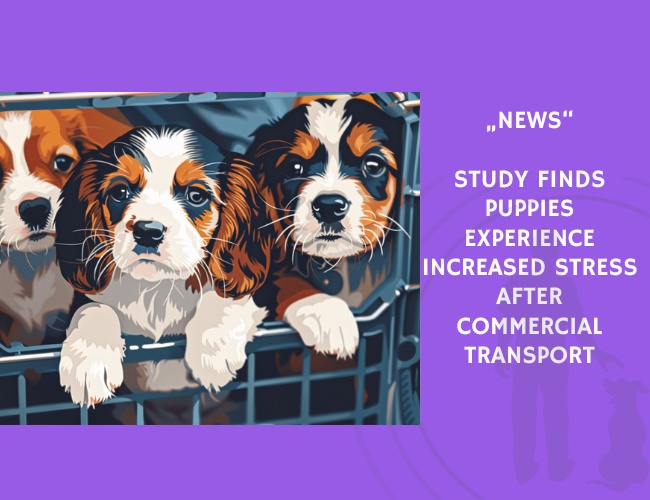Commercial transport is a major transition in the life of a young puppy. A new study reveals that this process may elevate stress levels in dogs during one of their most sensitive developmental stages.
Transportation from commercial breeding kennels (CBKs) to distributors is a routine part of the pet industry—but new evidence suggests it comes with considerable welfare costs. In a 2022 study published in the journal Animals, researchers assessed behavioral and physiological stress indicators in 383 eight-week-old puppies before and after they were transported by ground from 12 CBKs to a distributor.
The team, led by Aynsley C. Romaniuk and colleagues, conducted isolation and stranger-approach tests at both time points and collected fecal samples to measure stress hormones and immune markers. The findings show a clear increase in distress post-transport: puppies exhibited less exploration, more escape behaviors, and higher locomotion. Post-transport samples revealed elevated fecal glucocorticoid metabolites (FGM) and secretory IgA (sIgA), suggesting activation of stress and immune responses.
Notably, puppies showed increased affiliative behavior with strangers after transport—possibly indicating a natural tendency to seek social comfort following stress. Despite being physically healthy, the puppies’ behavioral and physiological changes suggest that current transport practices could negatively affect their welfare and development.
The authors call for further studies into transportation risks and urge the development of interventions—such as environmental enrichment, handling protocols, and journey duration limits—to reduce puppy distress during this critical life transition.










